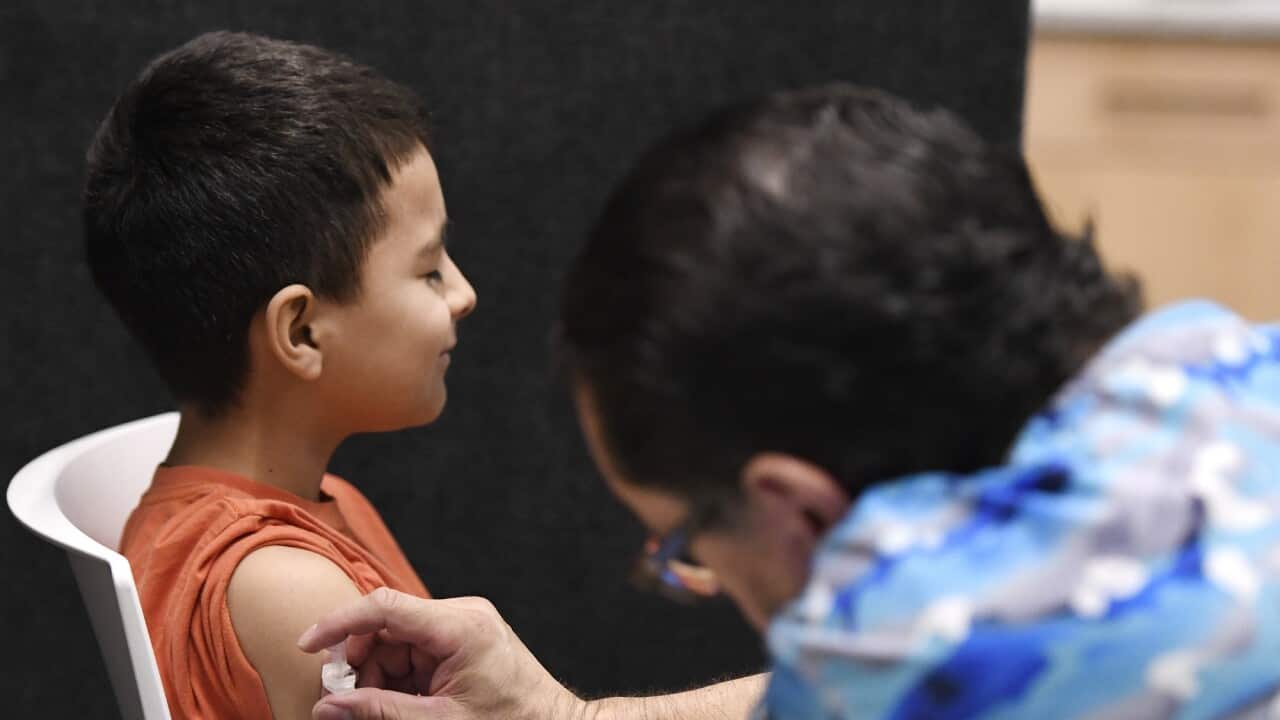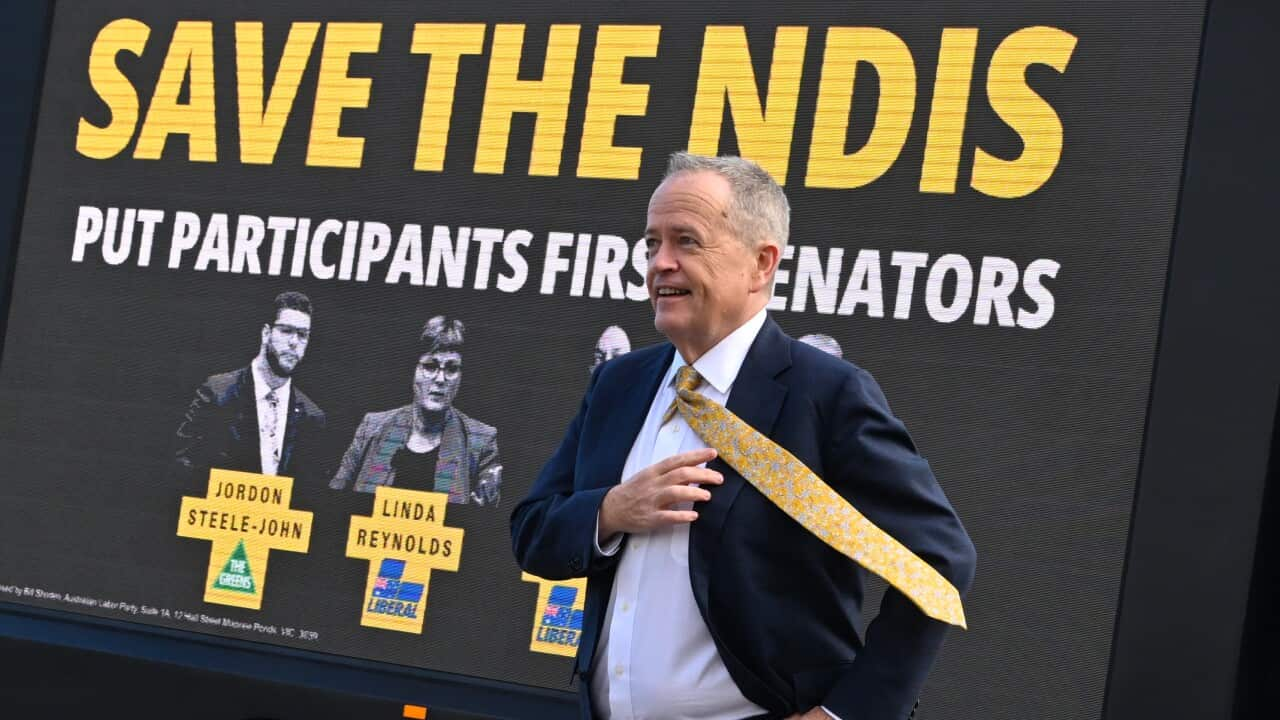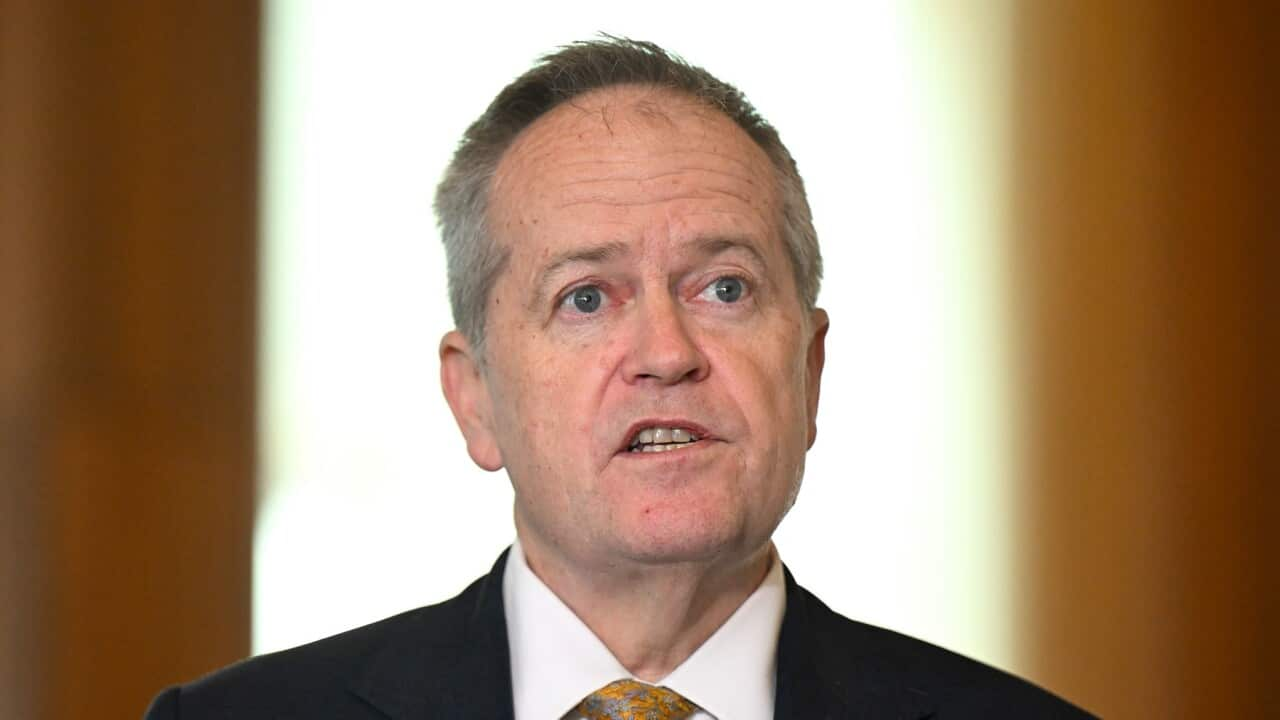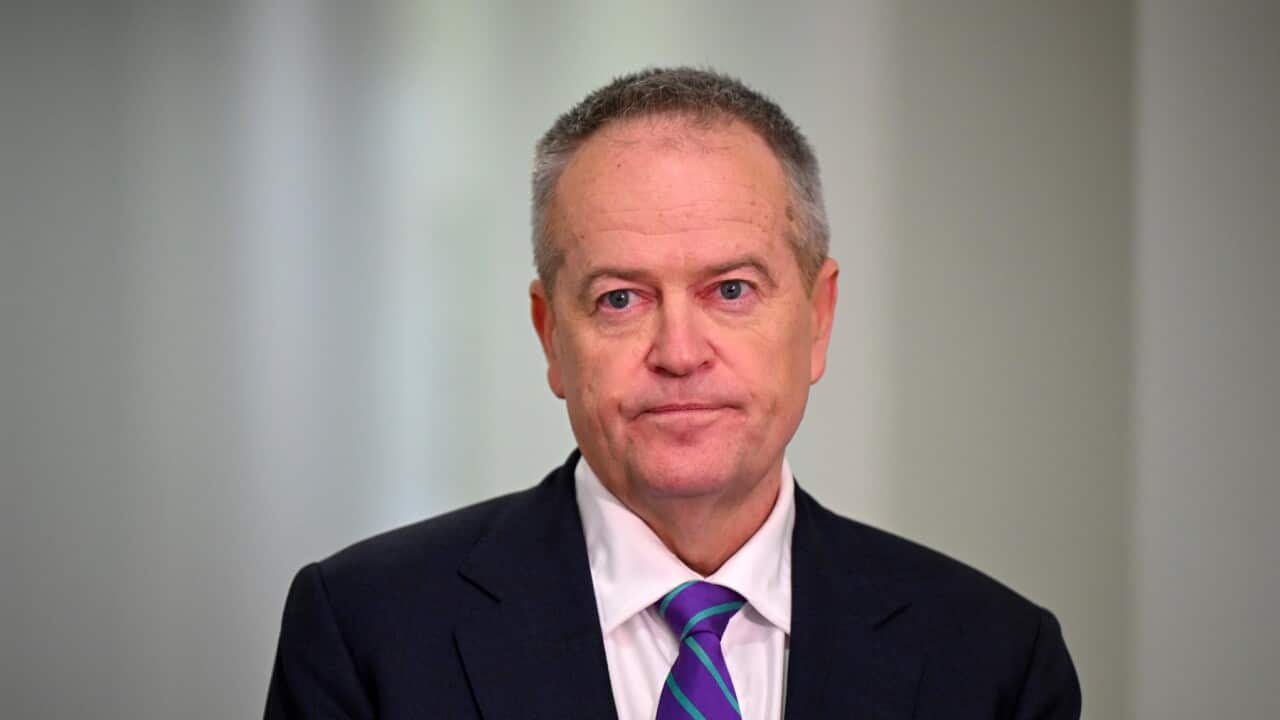TRANSCRIPT
A measles outbreak in the United States has now claimed two lives, with hundreds infected and large numbers of children hospitalised with complications.
Authorities say the best way to prevent outbreaks is through vaccination.
But some doctors have reported patients are sceptical of immunisations and there are large pockets of unvaccinated communities.
In fact, experts say there's been a decline across the world and not just the US, because of issues with access to vaccines - and rising suspicion and mistrust in them.
This episode of the Too Hard Basket looks at the measles outbreak in the US, and what implications there might be for measles in Australia, if anti-vaccine messaging takes hold.
“Austin Public Health today confirms the first reported case of measles in Travis County since 2019. It has been 25 years since any cases before that have been reported to us. This recent case involves an unvaccinated infant who was exposed to the virus during a vacation overseas.”
That's Dr Desmar Walkes from the Austin-Travis County Health Authority, reporting on a measles outbreak that authorities say is now raging through Texas and New Mexico.
Isolated cases have also been reported in 15 other states, with two unvaccinated people dying from the disease so far.
“The Department of State Health Services reported the first death due to measles in a school age child who was unvaccinated.”
Dr Amy Thompson from the Covenant Health Lubbock Service Area says other cases have ended up in the hospital.
“More than 20 patients have been admitted to the Covenant Children's Hospital. We have several of those who have required intensive care as a result of having the measles.”
The outbreak began in the west Texas town of Seminole, a Mennonite community where there are large numbers of unvaccinated people.
Texas Tech Physicians paediatrician Dr Tammy Camp says the disease spreads very easily in those conditions.
“Unvaccinated populations tend to congregate in single places. And so you may have a group of people who all feel strongly about not vaccinating and so they often do activities together. And because of that, if they are exposed, you have a ripe place to create a large population contracting that disease.”
Measles was once considered eliminated in the United States, thanks to the MMR vaccine and high immunisation rates.
But because measles is so contagious experts say at least 95 percent of a community must be vaccinated to stop outbreaks - and that's not the case in the US.
Vaccination rates have declined nationwide in the US since the COVID-19 pandemic, and most states are below the vaccination threshold for kindergartners.
Experts like University of Texas Medical Branch virologist Scott Weaver have sought to reassure communities, saying vaccines for measles are perfectly safe.
“The scientific evidence is very strong and very thorough that this is a very safe, very effective vaccine. And there's no scientific reason for people to be worried about getting the vaccination.”
Democratic Austin Mayor Kirk Watson has even led a vaccination campaign in Texas.
“I want to emphasise to everyone listening that vaccination remains the best defence against this highly contagious and deadly disease. It's time to check and make sure that you're up to date with your vaccination.”
It's convinced some parents like west Texas mother Macey Lane.
“I feel like vaccines were created to save lives. And even if they're not perfect, probably the good outweigh the bad. But not everybody's going to agree with that.”
But others are saying no.
And community leaders like senior pastor David Klassen from the Seminole Community Church say they're not going to attempt to change minds.
“We believe very strongly in the authority of the parents in the home. That they need to and should have the freedom to guide and lead their children.”
Advocates have linked parental hesitation about vaccination with a spike in widespread anti-vaccine messaging at state and national levels, messaging that fuels conspiracy theories about vaccine safety which have long been proven false.
Some of these anti-vaccine messages have been noted in the Trump administration, but vaccine experts say immunisation rates were dropping before Donald Trump's return.
Still, in recent times state politicians have filed more than 10 bills that would strengthen or expand vaccine exemptions, while newly appointed federal Secretary of Health Robert F. Kennedy Jr has ordered vaccine studies be cancelled.
Some researchers with grants from the National Institute of Health have received letters saying their projects are cancelled, with one letter saying:
"It is the policy of NIH not to prioritise research activities that focuses gaining scientific knowledge on why individuals are hesitant to be vaccinated and/or explore ways to improve vaccine interest and commitment.”
Most recently, Secretary Kennedy has given an interview to Fox News where he repeated debunked claims about vaccine safety.
“We should have transparency, we should have informed choice. And if people don't want it, the government shouldn't force them to do it. There are adverse events from the vaccine. It does cause deaths every year. It causes all the illnesses that measles itself causes - encephalitis and blindness, et cetera. And so people ought to be able to make that choice for themselves.”
The Secretary is also repeating claims around the use of Vitamin A and other treatments that some doctors say is having an impact.
Dr Ana Montanez in Texas says patients have told her they're giving their children vitamin A, another unproven treatment, to guard against the disease.
That's a measure once touted by Secretary Kennedy when he led the Children's Health Defense, a national anti-vaccination group.
Texas Tech Physicians paediatrician Dr Summer Davies says these treatments will NOT protect against potential infection.
“It is very hard to see these kids, treating them, because there's not a lot we can do. It's an infection that we don't have a cure for. There's not a medication that's gonna make it go away any quicker. And so you see them struggle. You see them struggling to breathe. They don't want to eat or drink. They get – they're dehydrated. They have high fever. They're miserable. They look miserable. And we do our best to support them through that. But it is very, very hard to watch.”
The decrease in vaccination levels is also being seen on an international scale - including in Australia.
Associate Professor Frank Beard is with the National Centre for Immunisation Research and Surveillance, which reports every year on vaccination rates across the country.
“The vaccination coverage has been creeping down over the last few years since the COVID-19 pandemic... So (a) modest decrease but it is concerning because before the pandemic, coverage had been pretty steadily increasing for the previous eight years or so.”
Paediatrician and vaccine expert Professor Margie Danchin is from the University of Melbourne and the Murdoch Children's Research Institute.
She says the decrease has especially been seen in particular communities and age groups.
“Since 2020 our childhood vaccine coverage rates at 1, 2 and 5 years in Australia have been steadily declining. And the biggest decline has actually been in First Nations children around that one to two year timepoint, particularly in the Northern Territory for example. So we have a big issue in Australia as well, and we're also ripe for a measles outbreak in Australia as well, not just in the Asia Pacific region.”
Professor Danchin says there are also clearly defined geographical areas in Australia that have lower vaccine coverage.
“In general, measles vaccination coverage is reasonably high. Of course that very much depends geographically... We do have quite big pockets of low vaccine coverage around Australia, for example in the northern rivers region in New South Wales, but also in inner city Melbourne and Sydney.”
If suspicion and mistrust of vaccines are behind lower vaccination rates in the United States, that's not the case for Australia.
Professor Danchin says while there are vaccine sceptics - access is the major issue.
“Practical barriers to vaccination. So not being able to make an appointment or pay for the appointment. Not being able to travel to get an appointment if a mother has lots of kids, or get time off work for example.”
Associate Professor Beard says there is concern about local outbreaks because of gaps in vaccination coverage, and unvaccinated people bringing measles back with them after overseas travel.
“Australia was certified by the World Health Organisation as having eliminated local measles transmission here back in 2014. Since then we have had some cases and outbreaks, and they've almost always been linked to unvaccinated people. Australians going overseas and then coming back with measles; or tourists from overseas with measles. And so there have been a lot of measles outbreaks over the last couple of years overseas that increases the risk that measles will be imported into Australia.”
Meanwhile, back in the Texas town of Seminole, Pastor Klassen says there has been no direct outreach from public health officials on what to do as the number of those sickened with measles grows during this US outbreak.
He says his congregation is just going about their business as they normally would.
“We choose not to be alarmist. That doesn’t mean that we wanna be careless. Like I said, with COVID, it was definite, like here were some clear directions from our government. Whereas in this case, we haven’t gotten any clear direction. OK? And so I think that's all I really can say is that we haven't gotten any any clear direction, so therefore we – life as usual.”













